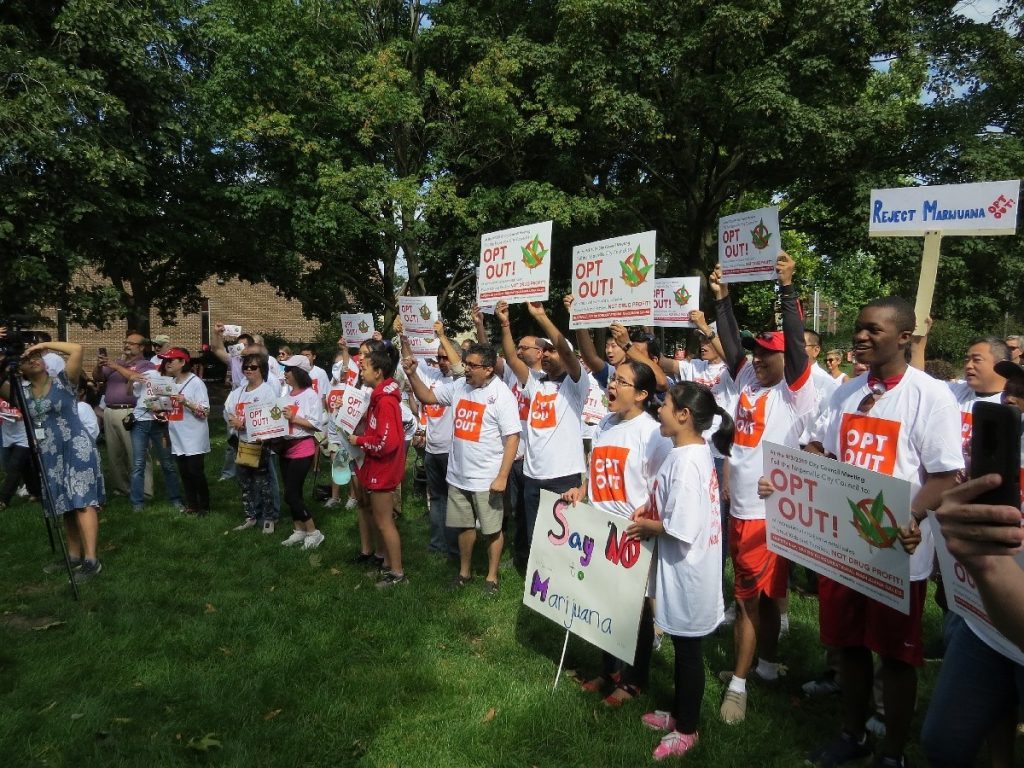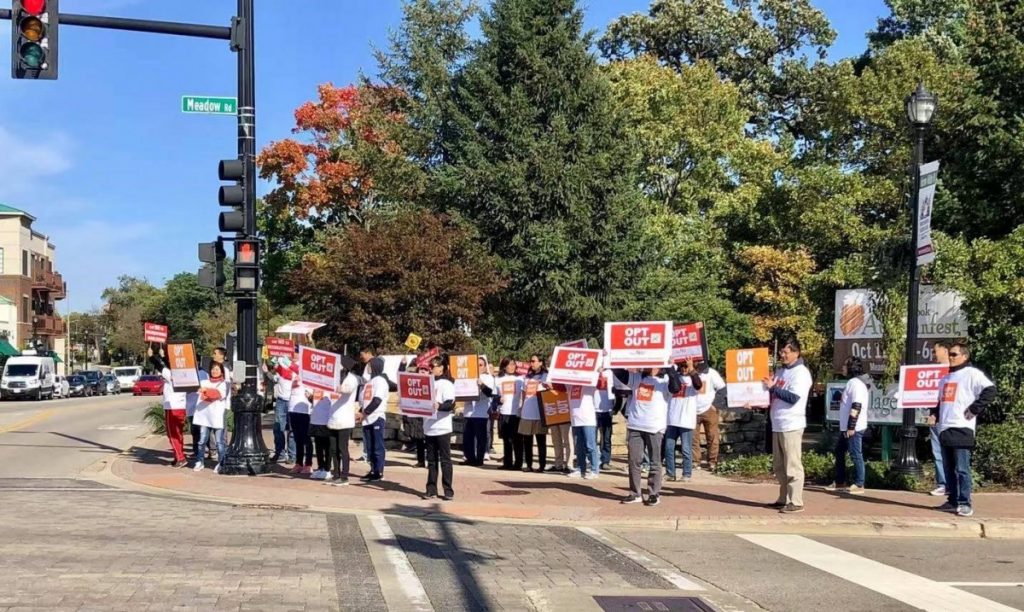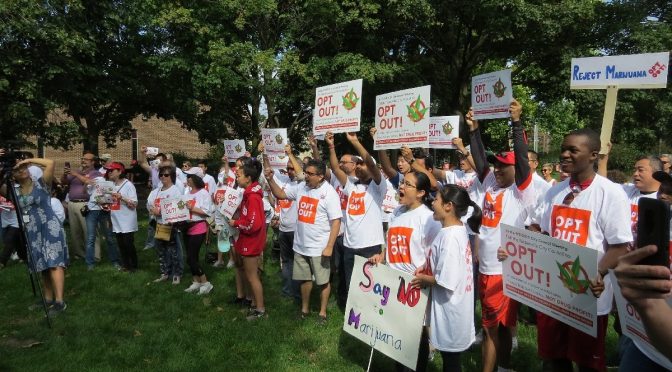By Barbara Shafer
Editors Note: The Opt Out groups in Illinois have educated themselves to see through the smokescreen of marijuana legalization. We thought this article in The Daily Herald touched on every major reason why states shouldn’t legalize marijuana. Heather Steans is the state senator who introduced the bill. It passed in a shell bill, avoiding much discussion.
Sen. Heather Steans couldn’t be more wrong, answering the question (re: cannabis legalization HB1438) “Is democracy a bad thing?” by stating the bill’s co-authors “don’t think so.” It wasn’t democracy. It was representation gone awry with 104 Illinois legislators speaking on behalf of 12.8 million Illinoisans.
With 60 out of 104 legislators having received a total of $630,000 in marijuana lobbyist money in 2017 and 45 voting yes, is it interesting? Yes. Comped? Maybe. Democracy? No.
Negotiation and compromise were missing, too, with a 600-page amendment appearing in an unrelated shell bill two days before the General Assembly’s end of session. No public debate. No referendum. No transparency. No democracy.

Question: Was HB1438 a bad thing? The real question is “Who ends up paying the price: you, your kids, businesses, communities, teachers, or law enforcement?” Other states teach us the answer: All of the above.
The co-authors claim, “Our intent was not to impose cannabis dispensaries on every community.” Will it end up that way? Washington State began with mandated medical, offered opt-out recreational, but finally allocated retail licenses to communities.
Legalization is failed policy
Sen. Steans propagates the error that “the same, tired arguments … have been used to defend a failed cannabis policy for the past 50 years.” We have been cutting edge, witnessing California’s problems with cannabis from illegal grows or returned to stores over pesticide concerns becoming hazardous waste requiring state regulation. It’s happening right now — in real time — as are dashed dreams of licensed “social equity” growers reporting there’s no profit for them in the shadow of a booming black market.
Neighborhoods devastated by drug epidemics (e.g. cannabis, crack cocaine, heroin, and meth) pay the price, too. Mayor Lightfoot is concerned about the “family friendly” nature of upscale downtown Chicago but why not the troubled neighborhoods where families live? There’s no help for them, only riches for Big Cannabis, the marijuana industry.

The Colorado Department of Revenue data reveals the most each municipality can expect in tax revenue per store is between $84,000 and $134,000, hardly worth the price to afflicted neighborhoods to pay for dispensary-specific administration, lawsuits and police data collection.
That’s the cost lesson from the Rocky Mountain High Intensity Drug Trafficking Study (e.g. for every $1 in sales revenue, $4.57 is spent on drug-related increased enforcement, education, and health care costs).
Steans’ assertions that (1) cannabis is not a gateway, (2) is just like alcohol, and (3) is restricted to those over 21 are just Big Cannabis talking points. But medical professionals including addiction experts would disagree. The American Academy of Child and Adolescent Psychiatry reports “teenage marijuana use is at its highest level in 30 years” because as the American College of Pediatricians reports, “legalization of marijuana has contributed to the growing belief that marijuana is harmless, [but] research documents the risks of its use by youth are grave.”
No good DUI test, plus environmental and health hazards
Furthermore, Steans’ claim that “Current DUI laws will apply to cannabis just as they do to alcohol” is utter nonsense. No accurate THC Breathalyzer exists. Urine and saliva tests are fraught with error and the one reliable test — a blood test — cannot be administered without puncturing the skin, opening law enforcement to expensive litigation over civil rights violations. Drug Recognition Experts (DREs) always test first for alcohol because in a court of law, it’s easier to prove alcohol than THC.

Finally, it’s one thing to change course, but other states’ experience provides an important map. If we want hazardous waste like 70 tons of illegal grow cannabis in the landfill (California), lawsuits (every cannabis state, and especially Colorado), THC-COOH accumulating in the Des Plaines River or Lake Michigan like Seattle’s Puget Sound, state-issued marijuana recognition ID cards (Washington), and nationally, children admitted to emergency rooms for consuming THC edibles resembling Halloween candy, that’s not a course change we want. These are but a few of the myriad real-life problems happening across the country, not 50-year-old rehashed rhetoric.
It’s problematic to ignore voters who were disappointed from the law’s inception because legislators seemed to listen to Big Cannabis lobbyists holding the lure of money.
When our sole recourse is to opt out, has this been democracy? We don’t think so.
Barbara Shafer, is lead researcher for “My Neighbor in Libertyville.” Becky Rudolph and Jennifer Bruzan Taylor, of Opt Out Naperville, also contributed to this essay.
Many Illinois communities who carry the Opt Out banner, including DuPage County, 2nd largest in state. Mayor Lori Lightfoot doesn’t want dispensaries in the Loop. Another article suggests Illinois is not ready to embrace marijuana.

